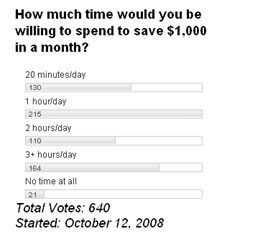We are at the End of this Eventful Year and as always we started working on our Resolutions, there are so many new applications to help with our Computer addiction. One application on your Computer helps you to take a break from your Current Task, by automatically disconnecting your Internet connection after every 2 Hours.
I Want to Share this Wonderful Post from Zen Habits and Reflect on things with Gratitude and to Live in the “Now” rather than Focusing on the Elusive Maya all the time…and I Wish you a Wonderful and Happy New Year!!!
breathe.
you’re already perfect
‘Be Content with what you have; rejoice in the way things are. When you realize there is nothing lacking, the whole world belongs to you.’ ~Lao Tzu
Post written by Leo Babauta.
A lot of people come to Zen Habits (and read other personal development blogs and books) because they want to improve something about themselves. They’re not satisfied with their lives, they’re unhappy with their bodies, they want to be better people.
I know, because I was one of those people.
This desire to improve myself and my life was one of the things that led to Zen Habits. I’ve been there, and I can say that it leads to a lot of striving, and a lot of dissatisfaction with who you are and what your life is.
A powerful realization that has helped me is simply this: You’re already good enough, you already have more than enough, and you’re already perfect.
Try saying that to yourself, as corny as that might sound, just to see if it sounds true. Does it resonate as something you already believe (in which case, you can probably stop reading now), or does it not feel right? Do you feel like there are things you still need to improve?
The thing I’ve learned, and it’s not some new truth but an old one that took me much too long to learn, is that if you learn to be content with who you are and where you are in life, it changes everything.
Consider what changes:
- You no longer feel dissatisfied with yourself or your life.
- You no longer spend so much time and energy wanting to change and trying to change.
- You no longer compare yourself to other people, and wish you were better.
- You can be happy, all the time, no matter what happens in the world around you.
- Instead of trying to improve yourself, you can spend your time helping others.
- You stop spending so much money on things that will supposedly improve your life.
- You can be smug about it, like me.
OK, the last bit was a joke, but the rest is true, in my experience.
And here’s another realization that I’ve written about before: You already have everything you need to be happy, right here and right now.
Do you have eyes that see? You have the ability to appreciate the beauty of the sky, of greenery, of people’s faces, of water. Do you have ears that hear? You have the ability to appreciate music, the sound of rainfall, the laughter of friends. You have the ability to feel rough denim, cool breezes, grass on bare feet … to smell fresh-cut grass, flowers, coffee … to taste a plum, a chili pepper, chocolate.
This is a miracle, and we take it for granted. Instead, we strive for more, when we already have everything. We want nicer clothes, cooler gadgets, bigger muscles, bigger boobies, flatter stomachs, bigger houses, cars with leather seats that talk to you and massage your butt. We’ve kinda gone insane that way.
The sane thing is to realize we don’t need any of that. We don’t need to improve our lives. We don’t need to improve ourselves, because we’re already perfect.
Once you accept this, it frees you.
You’re now free to do things, not because you want to be better, but because you love it. Because you’re passionate about it, and it gives you joy. Because it’s a miracle that you even can do it.
You’re already perfect. Being content with yourself means realizing that striving for perfection is based on someone else’s idea of what “perfect” is … and that that’s all bullshit. Perfect is who you are, not who someone else says you should be.
Also, as corny as it may sound, I love you, completely and unconditionally, and if everyone else in your world betrays and abandons you, you always have me. :)
Now stop reading this blog, and go be happy.












